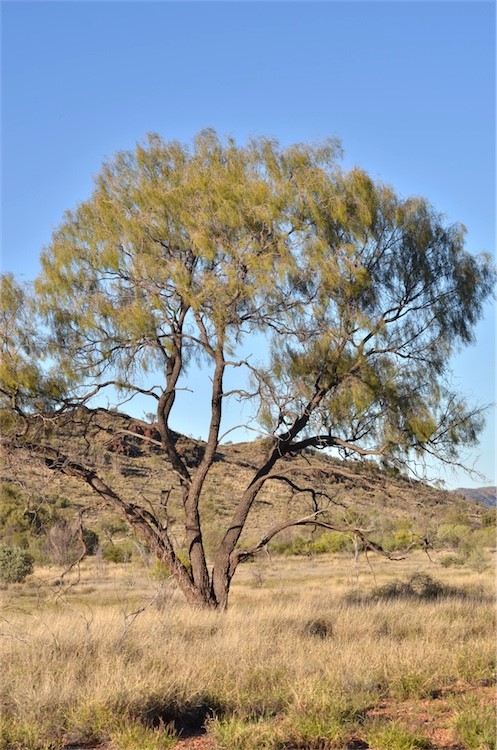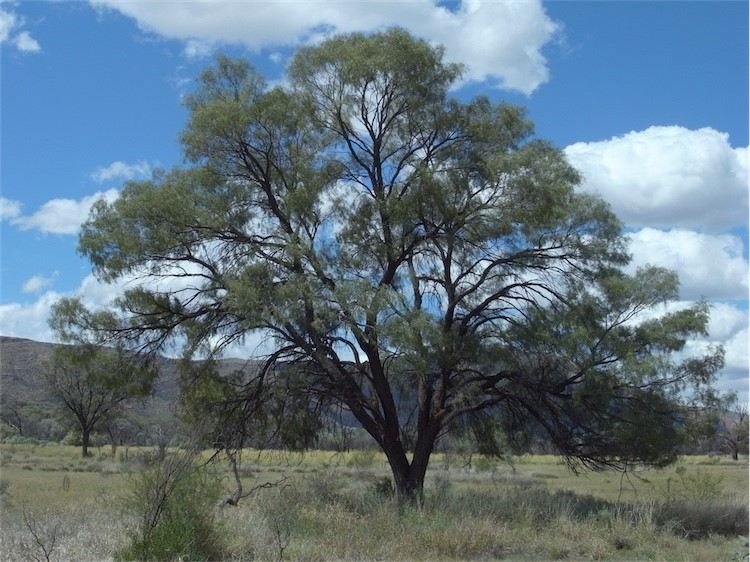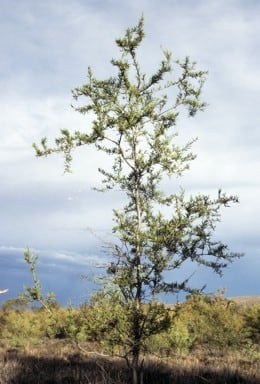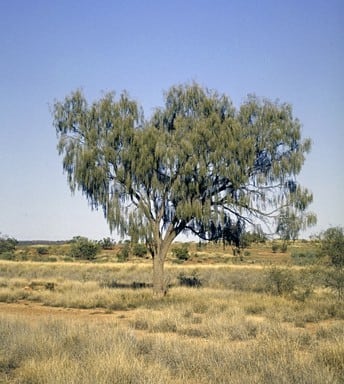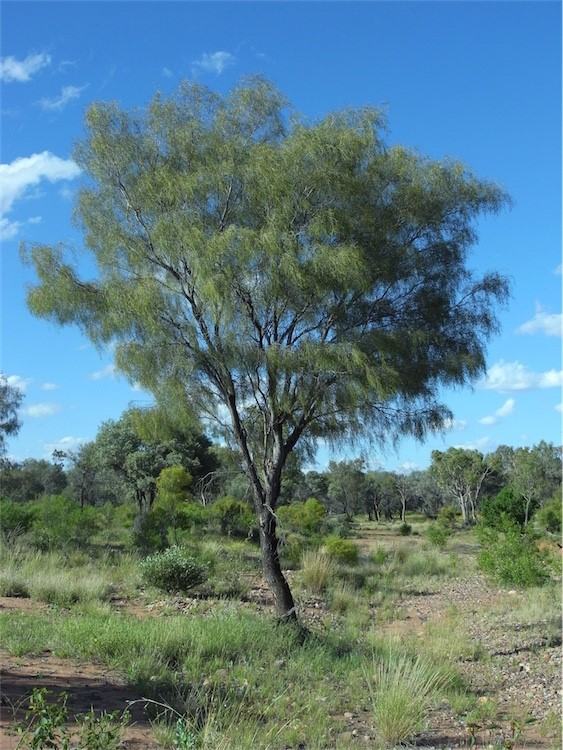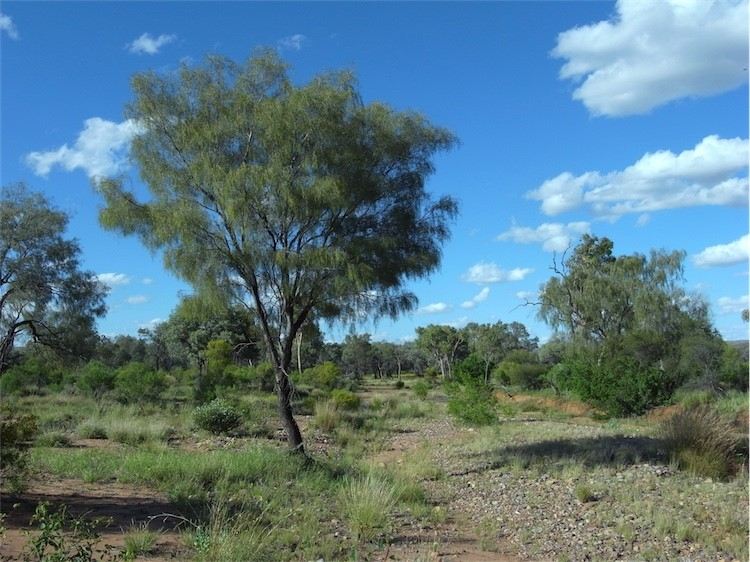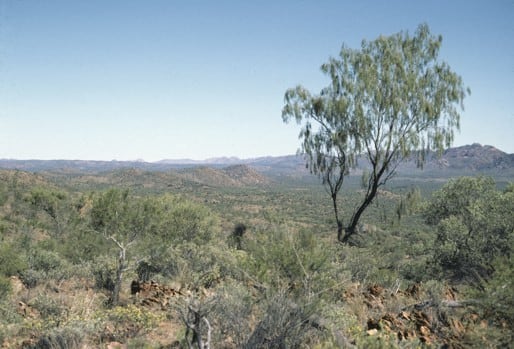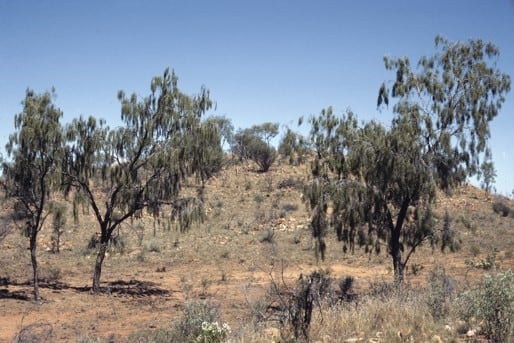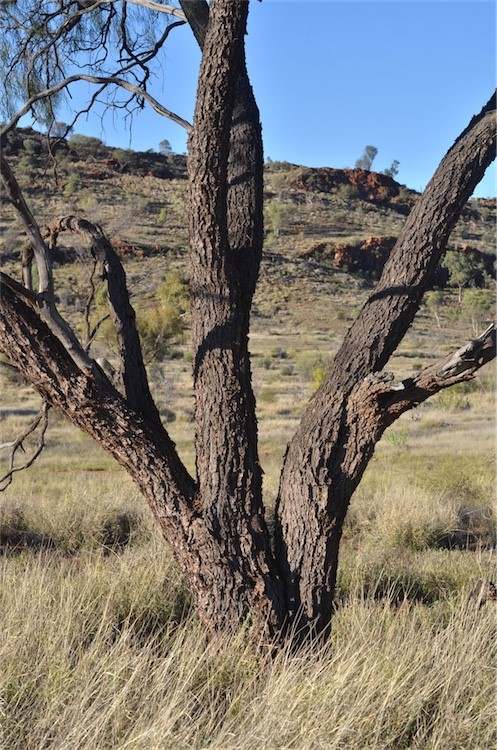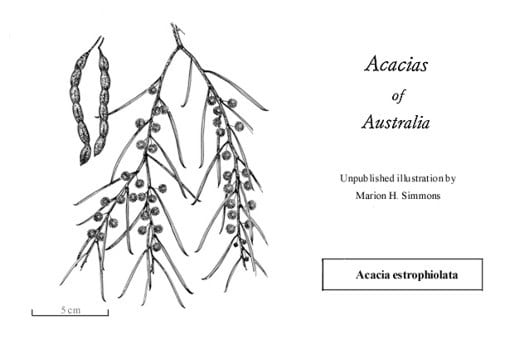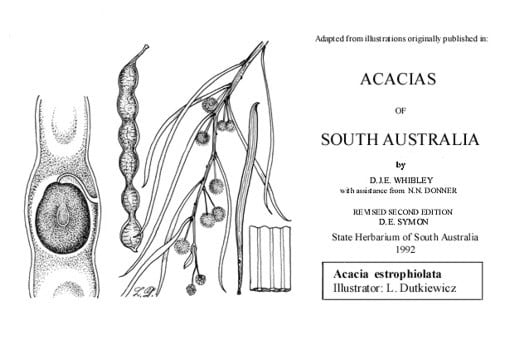Acacia estrophiolata F.Muell.
WATTLE
Acacias of Australia
Common Name
Ironwood, Southern Ironwood
Family
Fabaceae
Distribution
Common in southern N.T., extending into W.A. near Giles (with an outlier on Granite peak Stn c. 300 km NE of Meekatharra), to north-western S.A. near L. Eyre; there is also an outlier in NW Qld.
Description
Graceful glabrous tree 4–16 m high. Branchlets pendulous (mature plants). Phyllodes linear to very narrowly elliptic, straight to slightly curved, often slightly kinked at the gland, (1.5–) 4–11 cm long, (1–) 2–5 (–7) mm wide, l:w = 16–40, acute to short-acuminate, thinly coriaceous, pale green, glabrous, with 3 or 4 main nerves and sometimes sparsely anastomosing minor nerves in between; gland 3–20 mm above pulvinus. Inflorescences simple or rudimentary 1- or 2‑headed racemes with axes to 1 mm long, 1 or 2 per axil; peduncles 3–12 mm long; basal bract persistent; heads globular, 4–5 mm diam., densely 30–35-flowered, creamy to pale yellow. Flowers 5-merous; sepals free. Pods flat, breaking readily at constrictions between seeds, to 10 cm long, 5–7 (–9) mm wide, firmly chartaceous, reticulate, narrowly winged. Seeds longitudinal, oblong-elliptic, c. 5.5 mm long, dull, brown, exarillate.
Habitat
Grows commonly on sandy alluvial flats as scattered trees, but also in tall open shrubland and open woodland.
Specimens
W.A.: 5 km SE of Giles Meteorological Stn, A.S.George 12114 (PERTH); 3 km NW of Granite Peak HS, July 1999, R. & B.McLennan (PERTH). N.T.: 1.6 km E of Alice Springs, R.A.Perry 3229 (K, NSW, PERTH). S.A.: 48 km NW of Kenmore Park Stn near Ernabella, D.E.Symon 2702 (K, PERTH). Qld: Ardmore Stn, S of Mt Isa, R.Booth 3568 (BRI).
Notes
Closely related to A. excelsa but differing (perhaps arbitrarily) in phyllode proportions. Because of its narrow, 3-nerved phyllodes A. excelsa subsp. angusta is especially similar to A. estrophiolata, but besides being geographically separated, the subspecies appears to lack the slightly kinked phyllodes that often occur on A. estrophiolata. Perhaps distantly related to A. dolichophylla which has much longer phyllodes with prominently raised nerves; for more details see B.R.Maslin, J. Adelaide Bot. Gard. 2: 308 (1980).
There are obvious morphological differences between young and mature plants of this species. The young plants have rigid branchlets and short, straight, patent to erect phyllodes which are normally in nodose clusters; on mature plants the ultimate branchlets are lax and pendulous and the phyllodes are longer and not clustered.
Bark from branches, root bark and gum used traditionally by N.T. aborigines for various skin disorders, upper respiratory tract infections and gastro-intestinal discomfort, fide Aboriginal Communities of the Northern Territory (1993), Traditional Aboriginal Medicines N. Territory Austral. 12–13 (Conservation Commission of the Northern Territory of Australia, Darwin).
FOA Reference
Data derived from Flora of Australia Volumes 11A (2001), 11B (2001) and 12 (1998), products of ABRS, ©Commonwealth of Australia
Author
R.S.Cowan, B.R.Maslin
Minor edits by B.R.Maslin, J.Reid & J.Rogers
This identification key and fact sheets are available as a mobile application:
URL: https://apps.lucidcentral.org/wattle/
© Copyright 2018. All rights reserved.
